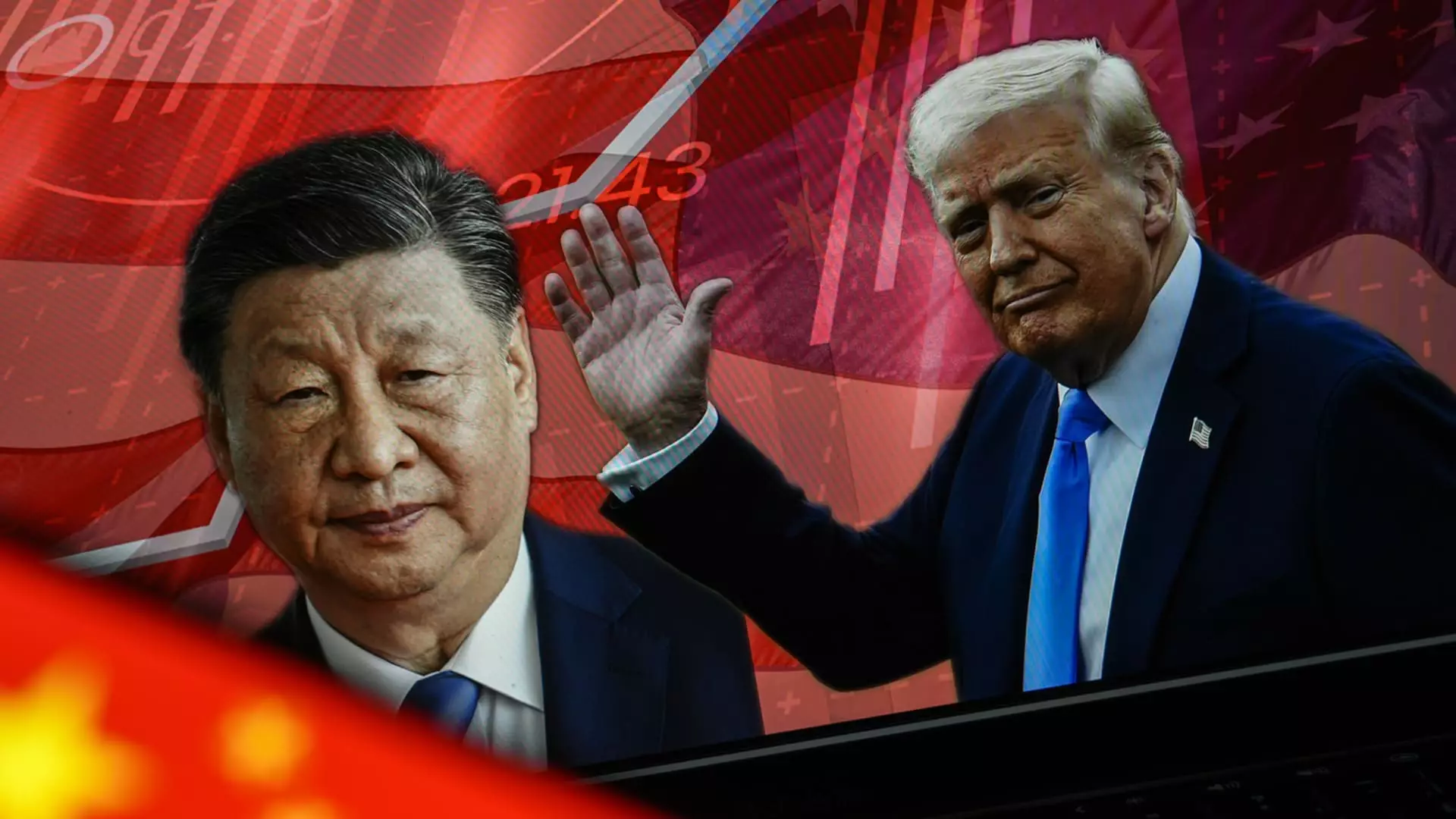The ongoing trade conflict between the United States and China has reached a level of absurdity that threatens the economic stability of both nations. Last week, China’s government declared it was finished retaliating with traditional tariffs, dismissing any further increases from the Trump administration as a “joke,” an insult laden with both sophistication and contempt. Instead of continuing a simplistic tit-for-tat approach, which has characterized this trade war for too long, Beijing seems willing to explore intricate methods of economic warfare that target the very fabric of American services and industries. As the situation evolves, it appears that the risk America faces is not just from tariffs but also from a more nuanced, insidious type of economic competition.
In this trade game, President Trump’s administration has cranked up tariffs on selected Chinese imports to the staggering level of 245%. One has to wonder if this sort of aggressive maneuvering is not just economically reckless but diplomatically foolish. Frustration is widespread; how can America maintain its leadership position with such irresponsible tariff policies? Beijing’s response has been strategically calculated: implementing steep duties on U.S. goods, reaching up to 125%, while simultaneously throwing up protective barriers in the form of non-tariff measures.
Broader Implications Beyond Tariffs
China’s latest approach includes deliberate actions against American corporations that extend far beyond commodities. By creating an “unreliable entity” list, China is not merely retaliating; it’s indicating a fundamental shift in its economic strategy. This list is essentially a damning categorization of American businesses that could injure their operations severely, crippling their access to one of the world’s largest markets. More disturbingly, it marks a shift toward using national security as a pretext to undermine U.S. corporate interests—an approach that both signals intent and raises the bar for foreign businesses in China.
In fact, Beijing’s tightening grip on rare-earth minerals exemplifies this. These resources are critical for technology and defense, including everything from semiconductors to missile defense systems. By essentially requiring exporters to secure special licenses, China is wielding its resource power as a weapon, not unlike a general holding prime weaponry over a battlefield. This isn’t just brinkmanship; this is warfare of a different type, and one that has the potential to derail U.S. technological advancements.
Against the Grain: Targeting Key Industries
Moreover, by specifically targeting sectors that resonate politically in the United States—aviation, education, and entertainment—China is maneuvering much more intelligently than in previous rounds of economic conflict. For instance, the targeting of Boeing, America’s largest exporter, sends a message not only to the company but also to American consumers and employees. When citizens witness an iconic American brand being strangled, it shapes public sentiment and complicates the political narrative. High-profile moves like these can alter public opinion and influence American policy—not to mention the potential ripple effects that could result from a reduced influx of Chinese students in U.S. universities or a downturn in tourism.
The recent restraint on importing U.S. films and the cautionary warnings directed toward Chinese citizens regarding travel or study in America signal a long-term strategy: deterrence by attrition. Beijing is crafting a comprehensive framework aimed not just at inflicting immediate economic pain but at fostering systemic divergence, eroding the bilateral ties that have historically anchored both economies.
Redefining Trade Relations and the Path Forward
Analysts and commentators like Wendy Cutler and Gabriel Wildau suggest that China is deviating from mere tradesmanship to crafting a new status quo, a persistent struggle for leverage where U.S. businesses become collateral damage in a greater geopolitical schism. The fear that companies like Apple, Tesla, and various pharmaceutical giants could find themselves at odds with an increasingly aggressive regulatory environment in China should alarm stakeholders on both sides of the Pacific.
What makes this situation so nonsensical is that, in striving for tariffs that are deemed “just,” both nations risk calcifying their economic relationships which could instead flourish under a cooperative framework. The refusal of either side to revert to negotiations under the pretext of fairness results in a downturn for both economies. Trump’s insistence that Beijing should be the one to make a conciliatory move overlooks the reality that both sides have a vested interest in resolving this conflict.
As these economic hostilities deepen and inflict long-term damage, it becomes increasingly apparent that the reckless destruction of relationships and industries might ultimately prove to be the most spectacular form of self-sabotage. The question is: will America learn from this episode, or will it merely continue to escalate the rhetoric while neglecting the grave implications of ongoing warfare?

Leave a Reply